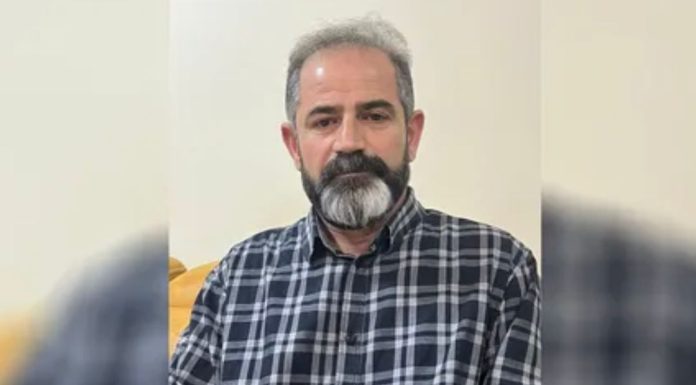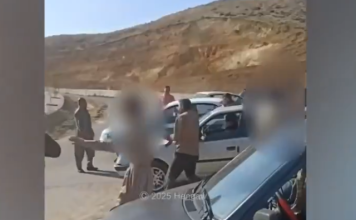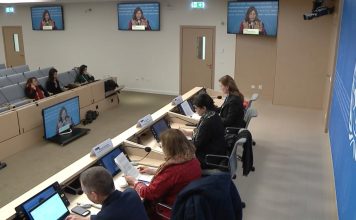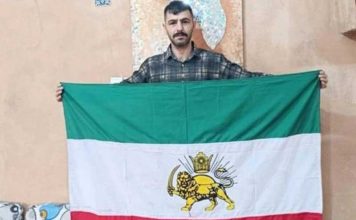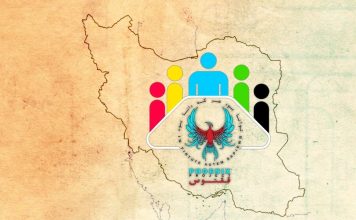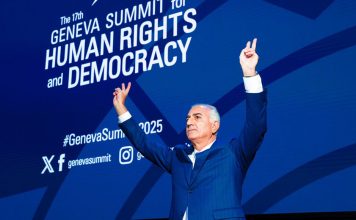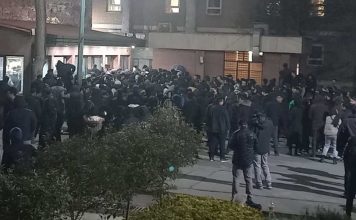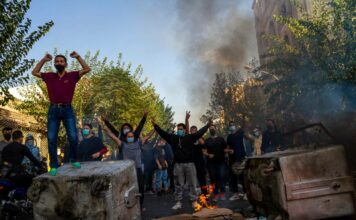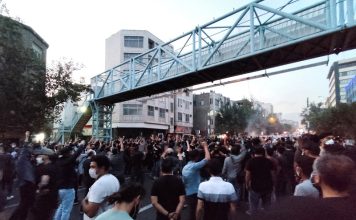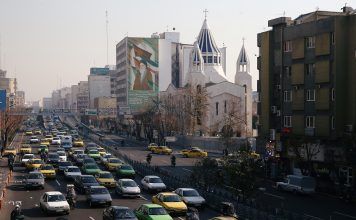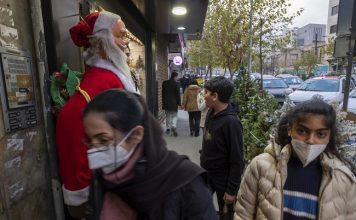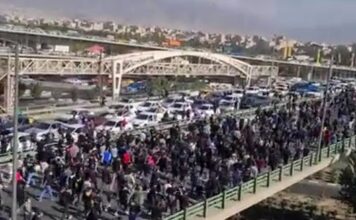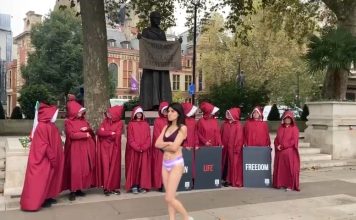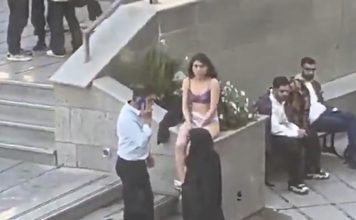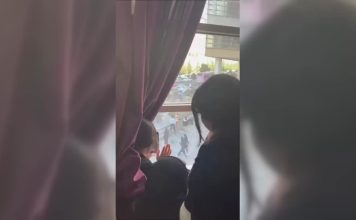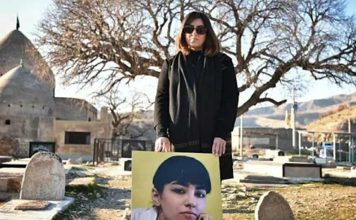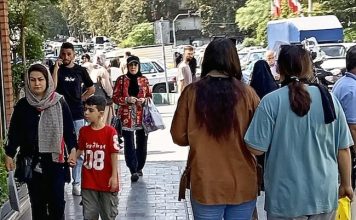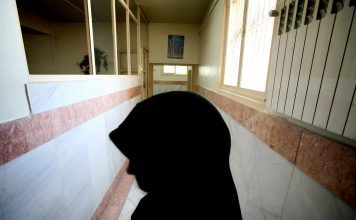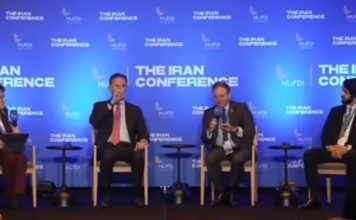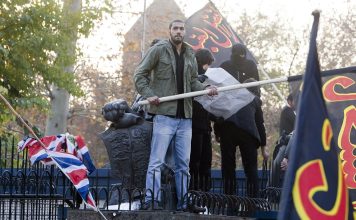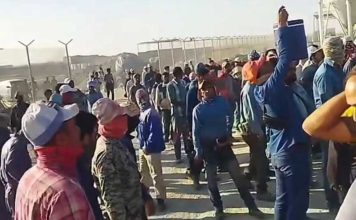Sept 16 (Reuters) – Iranian security forces briefly detained the father of Mahsa Amini on Saturday and spread across mainly Kurdish areas of the country, a year after her death in police custody set off some of the biggest protests since the fall of the Shah in 1979.
State-affiliated media reported arrests of several “counter revolutionaries” and “terrorists” in different Iranian cities and said security forces had foiled plots to create disturbances around illegal demonstrations.
The death in custody of Mahsa Amini, a 22-year-old Kurdish woman arrested by the morality police last year for allegedly flouting mandatory dress codes, triggered months of some of the biggest protests against the Islamic Republic’s Shi’ite clerical rule ever seen and drew international condemnation.
All of Iran's major cities were militarised. Nevertheless, protests in Teheren, Mashhad, Rasht, Isfahan and other cities of Iran. The Iranian regime fears its own people. Therefore, they bring to the streets of Iran tens of thousands of armed men. #MahsaAmini #MahsaDay… https://t.co/LWnU0la0zq
— Afshin Ellian (@AfshinEllian1) September 16, 2023
On Saturday, the first anniversary of her death, a massive security force presence was deployed in Iran‘s mostly Kurdish areas on Saturday in anticipation of unrest, according to human rights groups.
But footage on social media showed apparent protests in areas including Gohardasht, a neighbourhood of the city of Karaj west of the capital Tehran, and in the northeastern city of Mashhad.
Islamic Republic releases water from the Cheragh Weis Dam, flooding the alternative route to Mahsa Amini’s grave at Aichi Cemetary; main road is already blocked by forces.
That’s how desperate they are not to have any commemorative gathering of Mahsa Amini. #مهسا_امينی pic.twitter.com/cSaH5790J2
— Samira Mohyeddin سمیرا (@SMohyeddin) September 16, 2023
One video posted on social media showed a group of demonstrators in Gohardasht chanting “We are a great nation, and will take back Iran” while drivers honked their horns and shouted encouragement. Reuters could not immediately authenticate the video.
Mahsa’s father, Amjad Amini, was warned against marking the anniversary of his daughter’s death before being released, the Kurdistan Human Rights Network said. Iran‘s official IRNA news agency denied that Amjad Amini was arrested, but it did not say if he was briefly detained or warned.
Earlier, social media and reports by rights groups spoke of security forces taking up positions around Amini’s home in Saqez, in western Iran.
In a statement on Friday, U.S. President Joe Biden said: “Mahsa’s story did not end with her brutal death. She inspired a historic movement — Woman, Life, Freedom — that has impacted Iran and influenced people across the globe.”
Britain on Friday imposed sanctions on four Iranian officials and the United States said it was sanctioning more than two dozen individuals and entities connected to Iran‘s “violent suppression” of protests.
According to social media posts, Amini’s parents had said in a statement earlier this week that, despite government warnings, they would hold a “traditional and religious anniversary ceremony” at their 22-year-old daughter’s grave in Saqez.
Widespread strikes were reported in multiple cities in Iran‘s Kurdistan region.
However, IRNA said Amini’s hometown of Saqez was “completely quiet” and that calls for strike in Kurdish areas had failed due to “people’s vigilance and the presence of security and military forces”.
Israeli Intelligence Minister Urges UK to Declare IRGC Terrorist Organization
It quoted an official in the Kurdistan province as saying: “A number of agents affiliated with counter-revolutionary groups who had planned to create chaos and prepare media fodder were arrested in the early hours of this morning.”
In the protests that followed Amini’s death more than 500 people, including 71 minors, were killed, hundreds injured and thousands arrested, rights groups said. Iran carried out seven executions linked to the unrest.
In a report last month, Amnesty International said Iranian authorities “have been subjecting victims’ families to arbitrary arrest and detention, imposing cruel restrictions on peaceful gatherings at grave sites, and destroying victims’ gravestones”.
Many journalists, lawyers, activists, students, academics, artists, public figures and members of ethnic minorities accused of links with the protest wave, as well as relatives of protesters killed in the unrest, have been arrested, summoned, threatened or fired from jobs in the past few weeks, according to Iranian and Western human rights groups.
Iran‘s Etemad daily reported in August that the lawyer for Amini’s family also faced charges of “propaganda against the system”. If convicted, Saleh Nikbakht faces a jail sentence of between one and three years.
(Editing by Toby Chopra, Alex Richardson and Nick Macfie)

